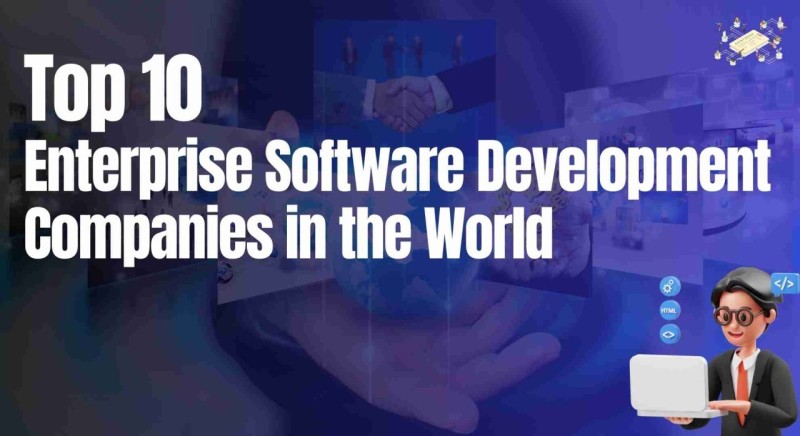any people start organizations with the aim of seeking acquisition. But others decide later that it’s time to move on—they’d want to pull their time and money away from a venture that is particular. It’s never ever too early (or too late) to start planning your exit strategy.
What Exactly is the Purpose of An Exit Strategy?

An exit strategy is how entrepreneurs (founders) and investors that have invested large sums of cash in startup companies transfer ownership of their business to a party that is third. It’s how investors get a return on the money they purchased the business. Common exit techniques consist of being acquired by another ongoing company, the sale of equity, or a management or employee buyout.
Whom Needs an Exit Strategy?
For anyone venture that is seeking financing or angel investment, having a clear exit strategy is important. Even whether you decide to sell the business, or decide to try to measure it and look for to be obtained if you’re a little business, it’s a good idea to plan ahead and think about the manner in which you will move ownership of the business later on. It is never ever too early to plan.
Should I Include My Exit Strategy Within My Business Plan?
As well as your exit strategy in your business plan and in your pitch is very important for startups that are asking for funding from angel investors or endeavor capitalists for funds to grow and measure. A lot of the time, small businesses don’t need to worry just as much they probably won’t seek investment (not all good businesses are good investments for angels and VCs) about it because. The small business founder’s goal might be to possess the business themselves for the near future that is foreseeable.
Which kind of Exit Strategy is Right for My Business?

This list should present an basic idea of common kinds of exit strategies. The sort of strategy you follow depends on what kind of company you are and your financial and goals which are strategic.
Here are some of the most typical:
- Acquisition
- Initial Public Providing (IPO)
- Management buyout
- Family succession
- Liquidation
- Acquisition
The acquisition is often referred to as a acquisition and“merger.” This will be because, whenever a company chooses to sell it self to another company, the buyer will frequently incorporate or merge the services of that company to their product that is own or offerings.
This happened when Google bought YouTube, seamlessly integrating the video platform to their search that is own item. Now, whenever you google a subject, you shall usually realize that videos appear in your search result page.
For a smaller scale, it may happen each time a coffee chain decides to buy a bakery business making sure that they can include a member of family line of pastries and tarts to their menu. An purchase or merger are a strategy that is appropriate businesses of all sizes, including startups.
A good thing about an purchase is that than it may actually be worth in the event that you get “strategic alignment” right, you stand to offer the organization for more. And, if there are multiple companies interested in your product, you may be able to improve the price further or begin a bidding war!
Reasons an outside company might look for to obtain or merge with another company start around allowing them to break right into a new market, to giving them a competitive advantage, or a strong customer base that is built-in. Or they might be interested in eliminating you as a competitor through the market that is present.
You room to make yourself appear popular with the businesses whom could be interested in purchasing you in the event that you know that being acquired is your exit strategy right from the start, this offers. That said, remember that those companies being particular decide not to purchase you or may never have been interested in doing so. If they don’t just take the bait if you do go down the road of producing a really niche item just one certain business is interested in, you also stand to lose big time.
Initial Public Providing (IPO)
This exit strategy is right for a small number of startups and larger corporations, but is maybe not suited to most little companies, primarily because it means persuading both investors and Wall Street analysts that stock in your company will be worth something to the public that is general.
For smaller organizations that have already begun expanding—like restaurants which have franchised—an IPO could be a great way for the owner to recoup money invested, that she or he may well not be allowed to sell stock until the lock-up period has passed though it really is worth noting.
A handful of well-known examples of restaurants on the stock exchange include Buffalo Wild Wings and BJ’s. Before with other businesses if you think this is the right strategy for you, or you want to at the least have the option of going public later, the best way to get listed is to seek investors that have done it. They shall know the ins and outs and be able to better prepare you for the procedure.
Speaking of the process—it’s long and hard. From selling your shares, and of course, the possibility of seeing the stock exchange crash should you choose flourish in winning over the hearts and data-centric minds of Wall Street analysts, you’ve still got to conform to the standards set by the Sarbanes-Oxley Act, you'll have underwriting charges you’ll need to pay, a potential “lock-up period” preventing you.
While an IPO may be a route that would work a company like Twitter or Macy’s, consider whether or perhaps not you need to weather the headache of tailoring business decisions towards the market also to what analysts believe can do well.
Management Buyout
You want to see continued long after you’re gone, you might want to consider turning to your workers in the event that you’ve built a company whose legacy. That’s right—not only will they've good idea of just how things are run already, but they have knowledge that is intimate company tradition, corporate objectives, and a pre-existing determination making it work.
There’s also the added bonus that you’ll want to do much less diligence that is born. Having management or employees purchase your business is a proven fact that is good legacy matters most to you. Needless to say, you might always consider passing the business on to family, but there’s always the risk there if you’re splitting the business between household people, the possibility of family rivalry they won’t understand the business, won’t have the determination to help make it succeed, and.
Family Succession
On that note, if your loved ones has been brought up with an knowledge that is intimate comprehension of your business, they may well be the ideal visitors to pass things on to. In fact, this is exactly what occurred at Palo Alto Software. Founded by Tim Berry in 1988, their daughter Sabrina Parsons ended up being made CEO and her husband Noah the COO soon before the recession hit.
The decision was permitted and strategic Tim to pursue other interests, including placing a consider writing. Since then, Sabrina and Noah have adapted the flagship company that is desktop-based product, Business Plan Pro, into a SaaS tool called LivePlan.
Passing Palo Alto Software on to grouped family was more fortuitous than carefully planned. Tim had always encouraged their kids to check out their own path. In fact, not one of them got degrees in business. It just so happened that Sabrina and Noah had entered the world that is internet in their careers and gained the experience necessary to join and build away Palo Alto Software’s product offerings.
In the event that you are considering passing your online business on to your children or other household members, you will find a number of things worth contemplating and preparing for, including ensuring that whoever is set to simply take the business over has the appropriate skill set, is competent, and is committed to your future and success of the company. This will make it a complete great deal easier to retire.
Liquidation
For small businesses, liquidation is a exit strategy that is common. It’s one of the quickest ways to close a business, and may often function as option that is just situations where in fact the operation of this business is reliant solely upon one person, where family members members are not interested in or capable of taking over, and where bankruptcy is close at hand.
It’s worth noting though that any profits made from selling assets require to be utilized to pay creditors first. To produce any money liquidation that is having an exit strategy, you’re going to have to have valuable assets you can sell—like land, gear, and so on. If it’s not hassle that is too much if your choice to liquidate is not related to funds, think instead about selling the business enterprise to the public. What are the real means you could make it appealing? If this isn’t an choice and it’s easier to close the doorways before you lose money, liquidating your assets might be your bet that is well.
Preparation for the Future?

If you’re putting together your business plan or getting ready to pitch to investors for the full time that is first think through your exit strategy. Make yes your financials are up to date and them regularly so that your business’s valuation is accurate that you’re reviewing







